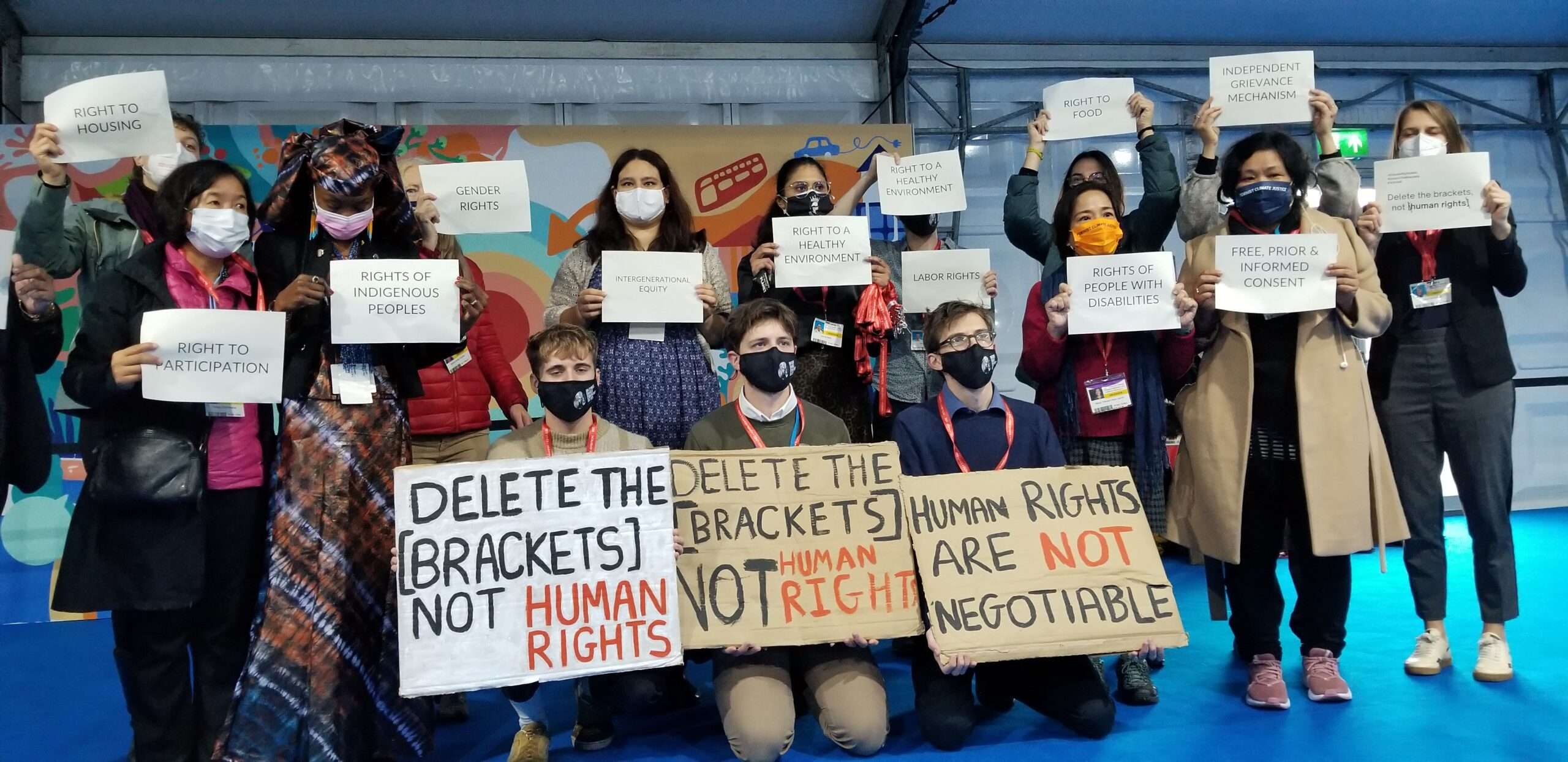November 10, 2021
Glasgow, Scotland — Following the bracketing of human rights in Article 6 draft text and continued limits on public participation, Erika Lennon, Senior Attorney at the Center for International Environmental Law, issued the following statement:
“With only days left before the end of COP26, any attempt to conclude Article 6 negotiations without robust, effective, and meaningful public participation is further evidence that the COP26 Presidency’s primary interest is getting a ‘win’ by concluding the Paris rulebook and not in advancing climate solutions that center communities. Ramming Article 6 through with the clock counting down and the voices of those who will be affected by any decision excluded from the process shows a gross dereliction of the UNFCCC’s duties and States’ obligations to uphold human rights, including the right to participation, gender equality, and labor rights.
“The recent decision to exclude civil society from the drafting of the Action for Climate Empowerment (ACE) work programme paints a stark portrait of what happens when CSOs aren’t in the room: Human rights are left on the cutting room floor. The same cannot happen in Article 6. Article 6 may look like it’s an accounting problem, but between the numbers, there are real consequences. Negotiators are making decisions that will impact peoples’ lives and the ecosystems in which they live.
“Whether it’s a hydroelectric project exacerbating water shortages and endangering the human right to water, as in the case of Chile’s Alto Maipo Project, or a project that disregards Indigenous peoples’ right to self-determination, land rights, cultural rights, and rights to adequate housing, food, and water, as in the case of Panama’s Barro Blanco Dam, there is ample evidence of previous Clean Development Mechanism (CDM) projects undermining human rights, including the rights of Indigenous Peoples. These projects should serve as a warning to not repeat past mistakes and to illustrate the need to chart a different course. We need voices of potentially affected communities in the room to help illuminate that better way forward. This is no secret: There are negotiators who recognize the value of civil society participation and observers in key moments. But the COP26 Presidency’s insistence on rushing decisions that will potentially jeopardize lives without robust and effective participation is unconscionable.
“Human rights must be more than a phrase inserted and deleted on a whim. Any outcome adopted during COP26 on Article 6 must include protection for human rights and Indigenous Peoples in the rules for every part of the mechanism. That includes:
-
- Strong rules for robust public participation mechanisms that include free, prior, and informed consent for Indigenous Peoples;
- Social and environmental safeguards centered on human rights; and
- Independent grievance mechanisms at the project and international level.
“We call on Parties to change course, make inclusion of human rights, including the rights of Indigenous peoples, gender equality, and a just transition in operative text their red line, and uphold their duties to ensure the social and environmental integrity of the Paris Agreement.”
###
Media contact: Cate Bonacini, press(at)ciel.org, +1-202-742-5847
